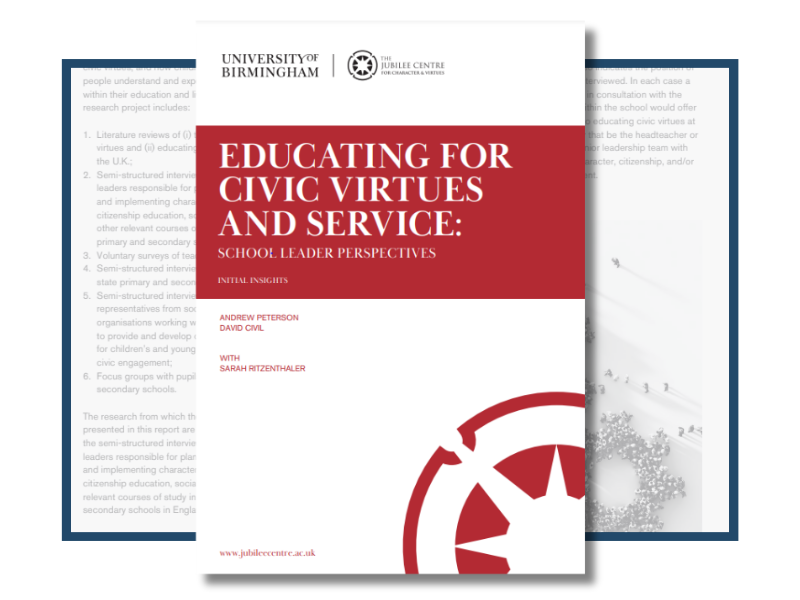A core function of education and schooling, whether explicitly recognised or not, is to prepare pupils to become responsible, active and informed citizens. Children themselves are already part of a range of often interlinked communities, and, as part of their day to day lives, they are impacted by the civic nature of these communities. Moreover, to different degrees and in different ways, children come into contact with ideas and issues that are essentially political and which relate in important ways to living in a democracy. As a result, alongside other sites of socialisation, schools play a key role in supporting children and young people to explore and express their civic character and to be able to engage with others in communities with kindness, criticality, compassion, honesty, integrity and a range of other virtues.

As the findings presented in this report suggest, most educators seem committed to the view that schools play a vital role in cultivating citizens of character. However, despite important historical connections between citizenship and character in education in England and Wales, the relationship between the two remains subject to contestation, not least with regard to the ethical dimensions involved. Here there remains something of a tension. On the one hand, schools are routinely tasked by the government, by the media and, at times, by families, to respond to some of society’s most pressing challenges: tensions in communities, social injustices, the proliferation of fake news, to name but a few. Yet on the other hand, precisely how schools should respond – conceptually and pedagogically – remains unclear.
